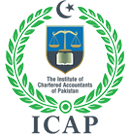CALL FOR PROPOSAL 2021 (Phase II)
OBJECTIVE OF RESEARCH
The ICAP-IBA Research Unit (IIRU) aims to promote research and development in Pakistan by attracting and retaining outstanding scholars having research interest and who seek to improve policies and practices in the areas relevant to the profession, including finance, accounting, auditing, corporate governance and taxation.
RESEARCH AGENDA
IIRU Research Agenda has been developed to bring together researchers and practitioners to ensure outcomes having impact on policies and practices. We, therefore, solicit research proposals:
- that encourage chartered accountants–researcher collaboration; and
- demonstrate that the identified research area is expected to create a significant impact on accounting profession and industry.
THE RESEARCH INTEREST OF IIRU
The preferred research discipline includes:
- Finance
- Accounting
- Auditing
- Corporate Governance; and
- Taxation
RESEARCH INTEREST 2021
Discipline 01 : Accounting
Theme : Accrual Accounting in Public Sector
Specific Context
Accrual Reporting is recording of the economic substance of transactions when they occur rather than when cash settlement happens. Since 2018, there is significant accrual adoption activity underway across all regions of the world. As per the International Public Sector Financial Accountability Index: 2020, by 2025 projections for Pakistan suggest partial accrual for Reporting Basis Forecast and IPSAS modified for the local context respectively as Reporting Framework Forecast.
In order for regions to comply with the standards, necessary reforms and interventions are required in public sector. The longer the planned reform period, the greater (and more significant) the uncertainties impacting the progress, and eventual success, of accrual implementation reforms.
Sub Themes
- Review of current and proposed reforms for compliance to international standards in public sector.
- Factors impacting reform processes and challenges for implementation within the sector.
- Local considerations for migrating towards accrual reporting in public sector.
- Steps for smooth transitioning towards reporting requirement.
- Financial inclusion – Pakistan experience of Self Help Groups
Discipline 02 : Economy
Theme : Quantum and Composition of Informal Economy
Specific Context
Around 30-50% of Pakistan accounts for informal economic activities. These informal economic activities that prevail accounts for most of the resources but are not accounting for in the overall economic development of the country. In planning to initiate various measures to curb the impacts of parallel economies, it is crucial to first estimate the scope and depth of undocumented economies. The current economic situation makes it imperative for the government to take concrete steps towards documentation of economy.
Sub Themes
- Sectoral composition of informal sector
- Historical trends within this informal sector over various periods
- Comparative analysis of various estimation methods for undocumented analysis
- Impact on undocumented economy on taxation, development, infrastructure and other economic indicators of the country.
Discipline 03 : Entrepreneurship
Theme : Regulatory and taxation challenges for Entrepreneurs/Startups
Specific Context
Due to complex regulatory and taxation policies, there are various challenges for entrepreneurs within the country to startup their businesses. From incorporation to operationalizing the business, entrepreneurs are struggling to meet the regulatory compliance. Although, over the past few years, the country has observed the rise in digital startups, however, there has been various risk, investment, legal and resource mobilization challenges that still impacts this sector. Government efforts to create a friendly environment will help build a sustainable ecosystem for startups to contribute towards economic uplift of the country.
Sub Themes
- Sectoral composition within startups
- Provincial taxation complexities
- Regional comparative analysis of startup ecosystem and regulatory interventions
- Best practices for support layers available for mentoring and investment.
CONDUCT OF RESEARCH
The following are the expectations from the grant holders:
- Scientific rigor in performing research that includes data collection, analysis and interpretation.
- Documentation of data, processes, judgments and opinions.
- Referencing and, where applicable, obtaining permission for the use of all published and unpublished work of others.
- Settling the author-ship matters and including all individuals who made a substantial contribution.
- Acknowledging appropriately all those who contributed to research, including the sponsors.
THE GRANT
The maximum limit of the grant is Rs.600,000 for each research project.
ELIGIBILITY OF THE APPLICANTS
- Must be a citizen of Pakistan and preferably residing in Pakistan.
- Having either of the following completed or in-progress degrees and/or qualification,
- A research based master’s degree for independent research proposal
- Pursuing a research based master’s degree program where research is supervised by a faculty.
- Chartered Accountancy, where research is supervised by a faculty.
- Preferably having relevant industry and academic experience.
- Unit Head may recommend waiver from any of the above eligibility criteria based on merit of the case. The waiver is subject to the approval of Research Oversight Committee.
- The eligibility criteria apply to all candidates if a joint proposal is submitted by two or more candidates.
APPLICATION AND APPROVAL PROCESS
| Process | Date | |
| 1 | Start date of the application | February 22, 2022 (Closed) |
| 2 | Last date of the submission of application | March 22, 2022 (Closed) |
| 3 | Evaluation of the proposals | April 15, 2022 (Closed) |
| 4 | Offer to the candidates based on recommendations of Unit Head | May 15, 2022 (Closed) |
| 5 | Finalization of contracts | May 31, 2022 (Closed) |
| Title | WORD | |
| GRANT APPLICATION FORM |








